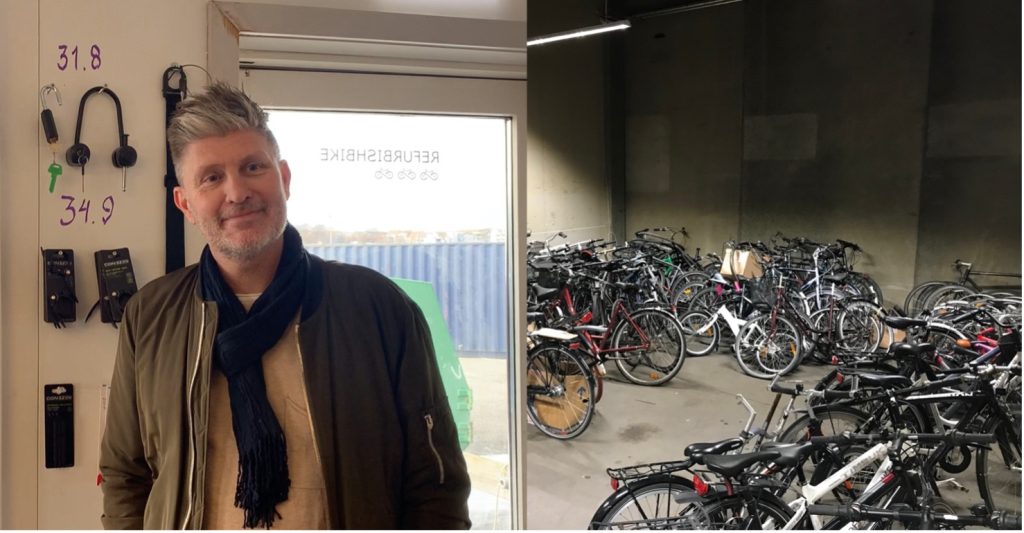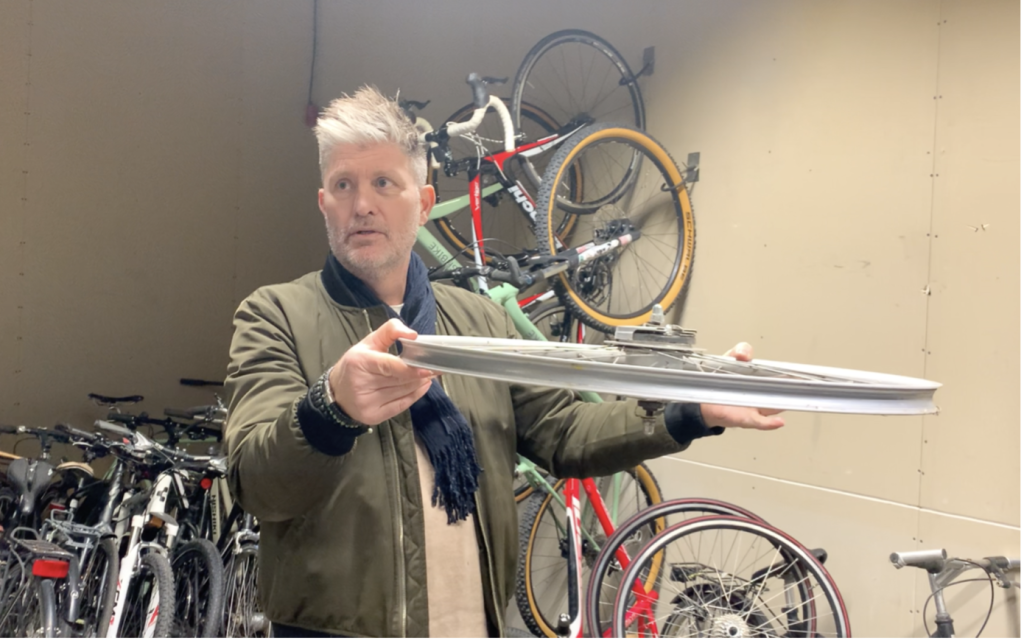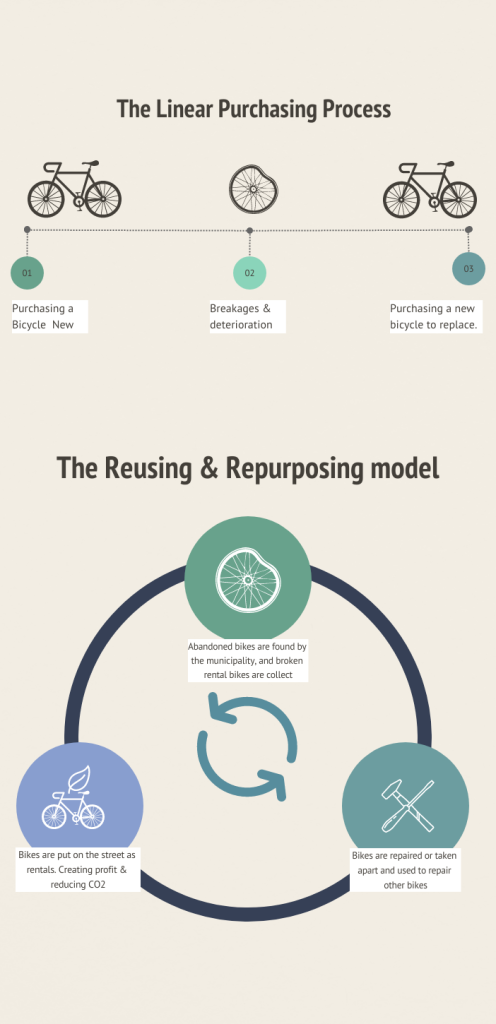
In Aarhus, Denmark, abandoned and broken bikes are being repaired and reused to provide Aarhusians with public transport and at the same time helping to reduce CO2 emissions of the city.
For several years, Aarhus residents had complained that abandoned bicycles were taking over the cityscape. But it was only when Niels Nyhus was told the actual number of how many bikes were scrapped annually; thousands, that he came up with the idea for his bike-rental company Refurbish bikes. He and his friend Anders Schriver shared an interest in bicycles and realized that they could start a business where they repaired abandoned bicycles to rent them out.
They received a start-up grant from Aarhus municipality when they started in 2020, because their business helped contribute to reducing CO2 emissions.
“First, we clean the bike, then all vital items on it will be checked, adjusted, fixed or changed with used items. By that, we are creating bikes with 90 percent sustainable material. Instead of becoming garbage, we fix the bike with lots of different bikes combined. And a bike like this gives back 250kg of CO2” says Niels Nyhus.
At first, there were mainly students renting bikes. But since then the business has expanded a lot, and today the customer base is more mixed.
“Last year we had a family with children from Italy who rented bicycles to cycle back and forth to Skagen, that’s 400 km with reused bicycles” says Niels Nyhus.

On the Refurbish bikes window it says: Did you know that if Danes biked 10% more than they do today, we would have 235000 less sick days annually.
Nyhus explains that due to the Covid-19 pandemic, there’s large shortages of parts for repairing bicycles. The companies that produce these parts favour larger corporations rather than smaller businesses like his. Instead of succumbing to these issues, he looked for a more accessible solution.
“We’re missing wheels, chains, gear handles. So we had to look into resources locally. Because when a bike is abandoned it’s not normally totally broken, so lots of parts can be reused and recycled. ”

Niels Nyhus shared his own various concepts for reusing old bike parts. Such as creating office lighting by combining LED lights with the rim of the bike.
And not only can you recycle bikes with bike parts. Some parts that are no longer usable for his own rental bike business still have other ways they can be reused. Tires are collected, processed and recycled into new products, and inner tubes and gear wires can be recycled and used in the furniture industry for benches and seating.
Since its start two years ago, the business has grown. Niels Nyhus is already in contact with other municipalities in Denmark to possibly start similar operations there. He is also interested in expanding internationally.
“It is in our thoughts. We’ve been glancing at Sweden and the Netherlands.”
By Bella Ireland
